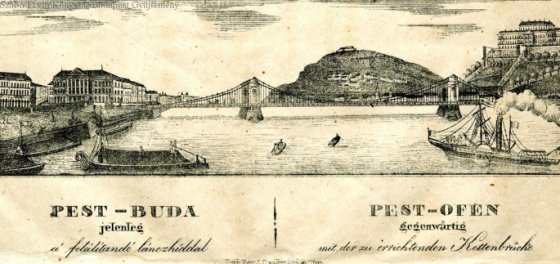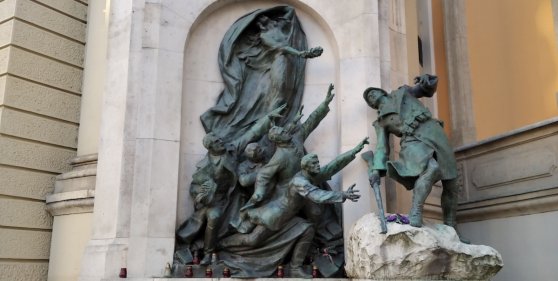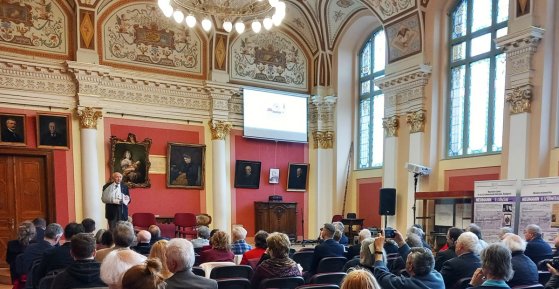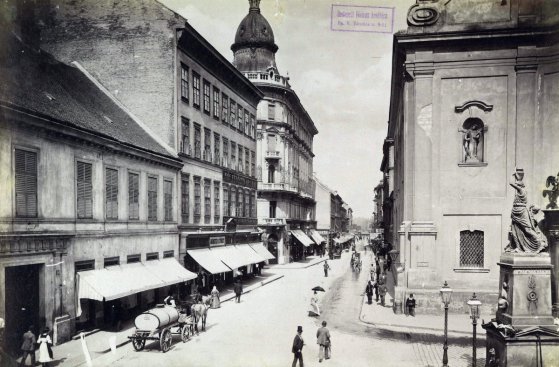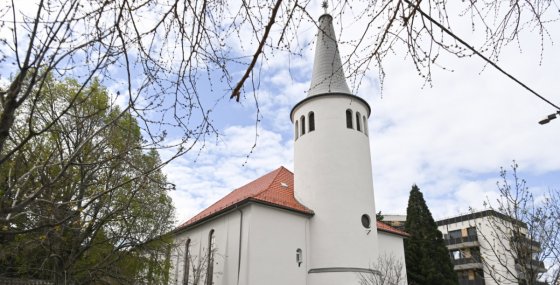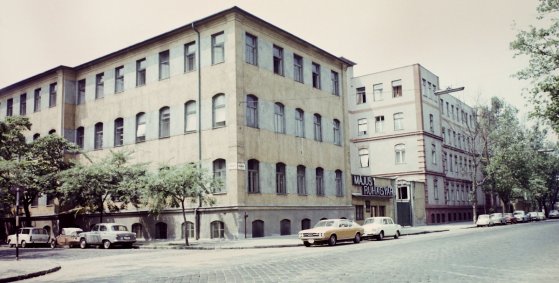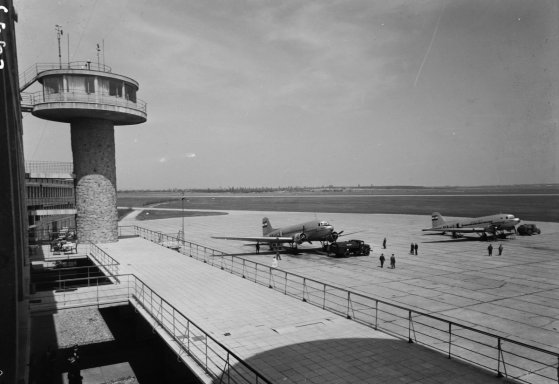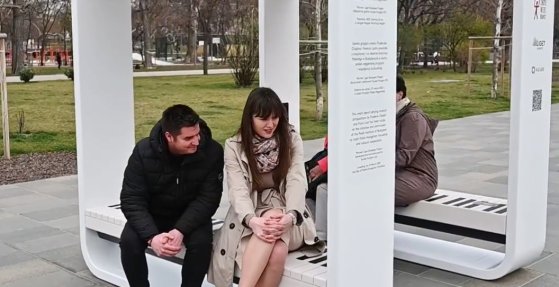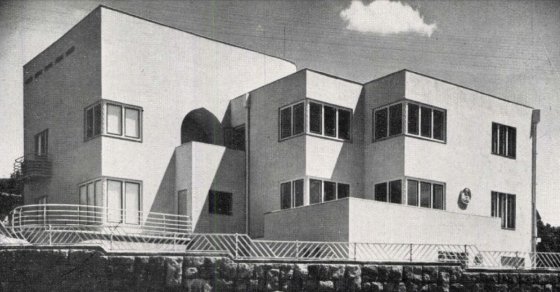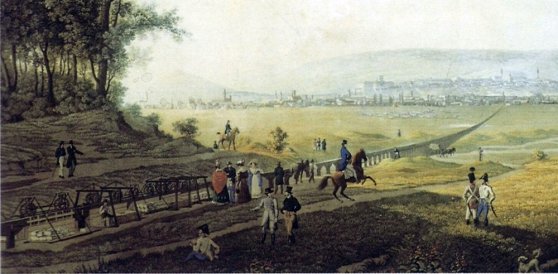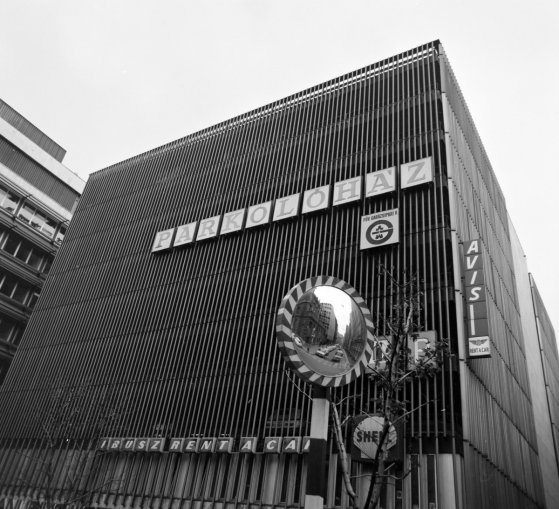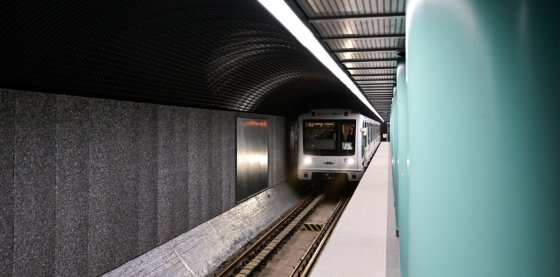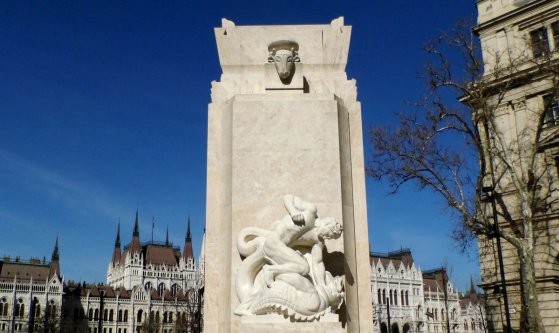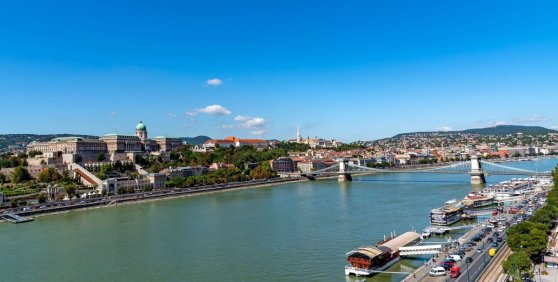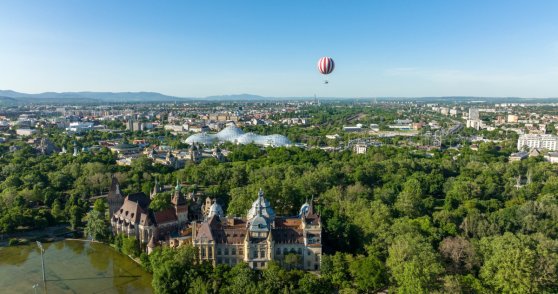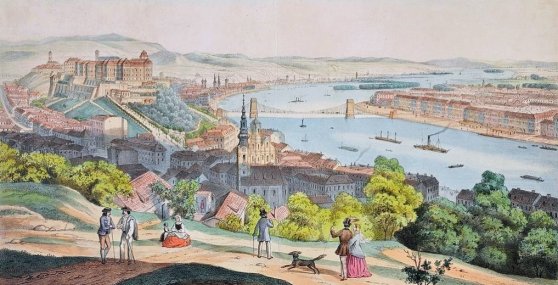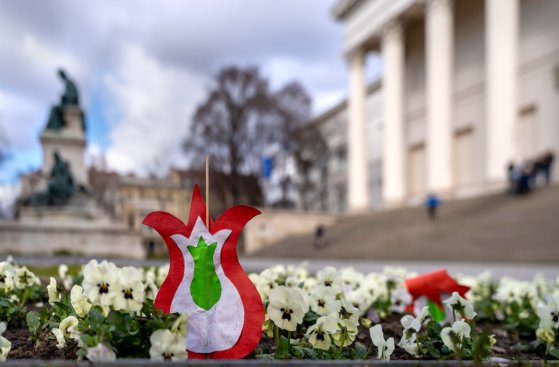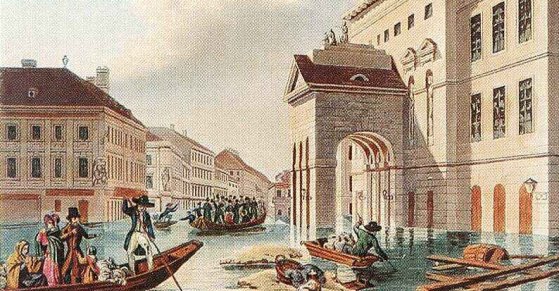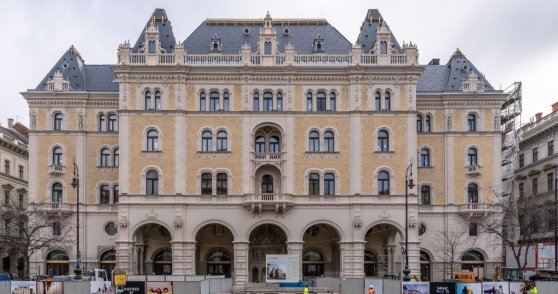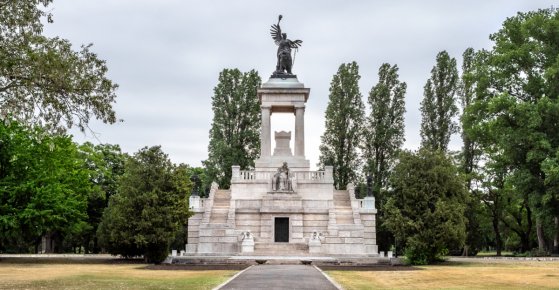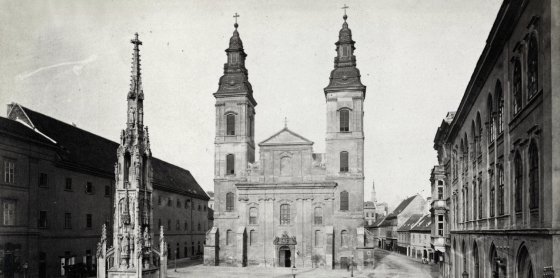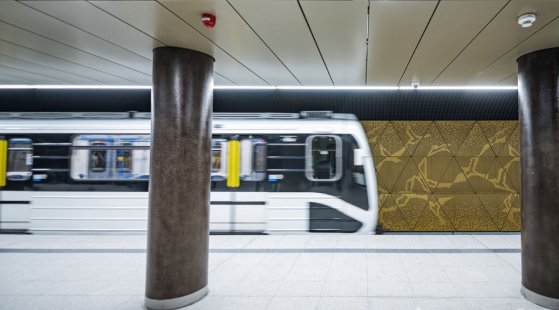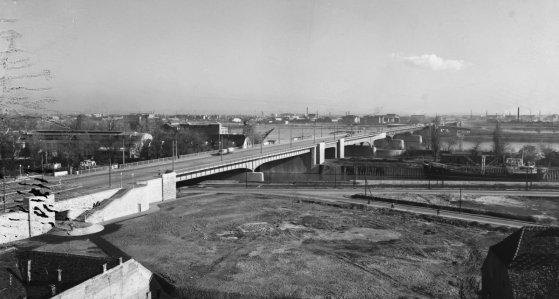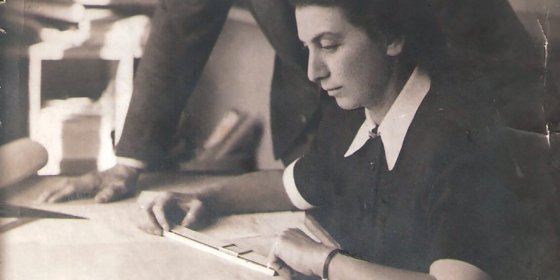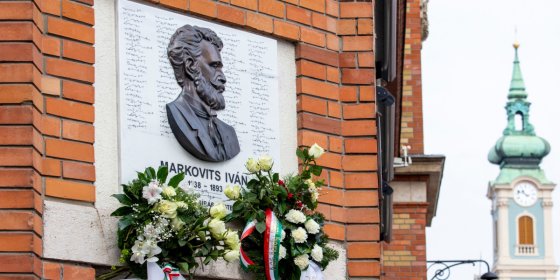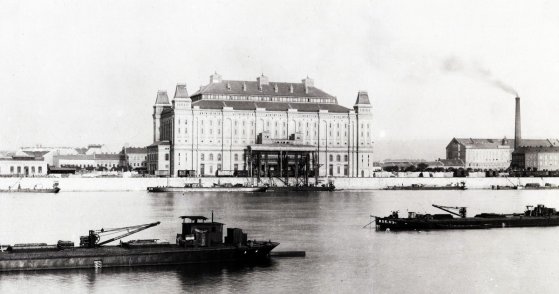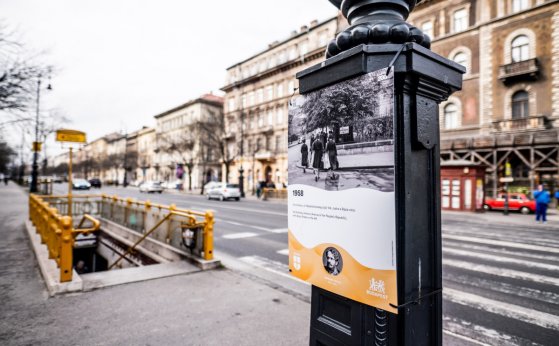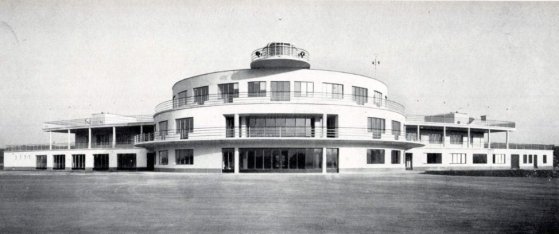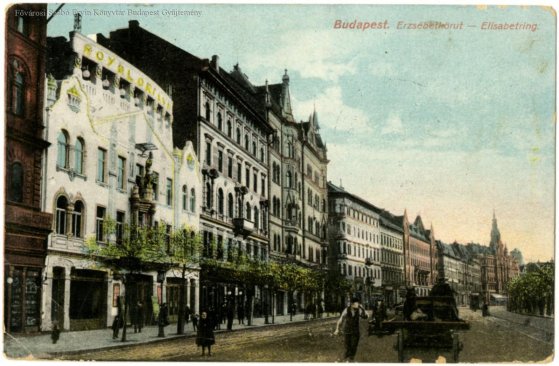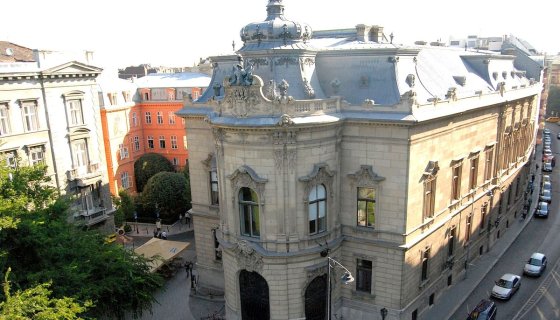 From eclecticism to brutalism: Budapest's protected buildings are presented
The exhibition titled "From Eclecticism to Brutalism: Architectural Assets Excavated in Budapest between 2017-2022" opens today at the Metropolitan Ervin Szabó Library. Through the buildings that have been placed under local protection in the past five years, the exhibition presents the change of architectural styles found in the capital from the end of the 19th century to the beginning of the 1970s.
From eclecticism to brutalism: Budapest's protected buildings are presented
The exhibition titled "From Eclecticism to Brutalism: Architectural Assets Excavated in Budapest between 2017-2022" opens today at the Metropolitan Ervin Szabó Library. Through the buildings that have been placed under local protection in the past five years, the exhibition presents the change of architectural styles found in the capital from the end of the 19th century to the beginning of the 1970s.
Budapest
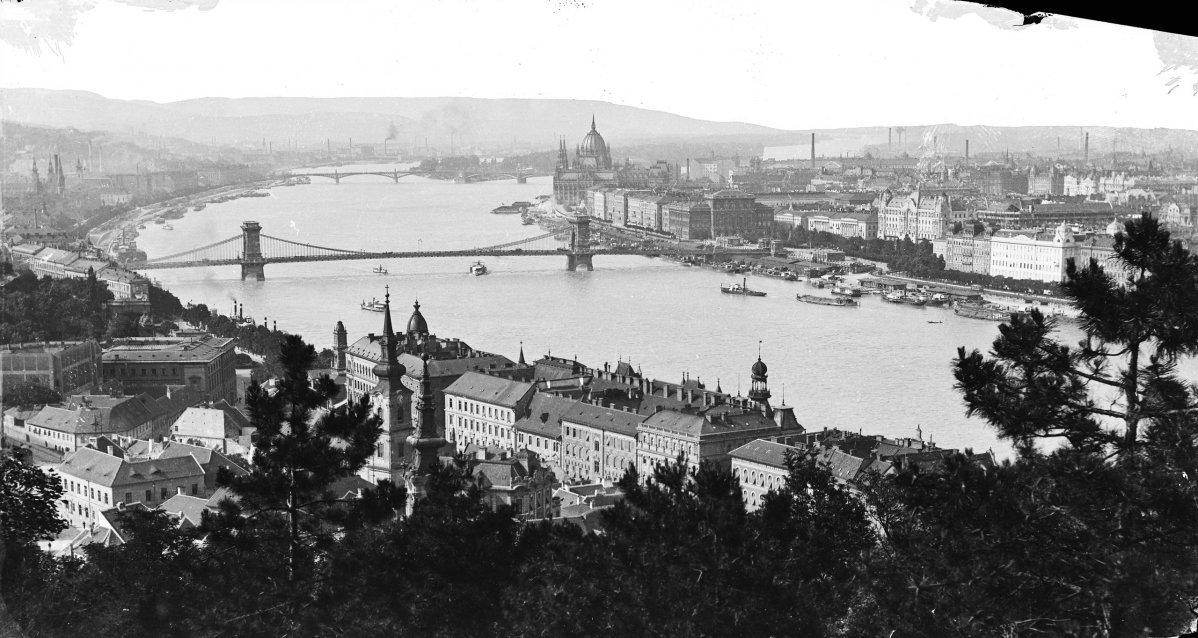 The „intertwined history” of the bridges and the city of Budapest
The „intertwined history” of the bridges and the city of Budapest
February 8, 2025 at 3:00 PM
Which ideas and events have shaped the fate of bridges of Budapest and the cityscape? Alongside many other interesting facts, this question is also answered this newly published book by the Budapest City Archives, which introduces the history of bridges in Budapest.
The Bridge Report, which brought a turning point in the history of Budapest
March 31, 2023 at 3:00 PM
A travel report that changed the history of Pest and Buda, as well as Hungary. The little book contributed to the change of half a thousand years of legal customs and the implementation of an investment of unprecedented size and technical quality. This book was The Bridge Report [Hídjelentés in Hungarian].
Drama on the university wall - The heroic monument was planned 95 years ago
March 30, 2023 at 9:00 AM
In the constant hustle and bustle of the Egyetem Square in Pest, the students may not even notice the monument that decorates the short section of wall between the church and the central building of ELTE. However, it commemorates their predecessors, the heroes who fought for their country in World War I, and those who heroically helped them. The first design of the dramatically collapsing soldier was born in 1928, ninety-five years ago.
A message from the former school: An exhibition in memory of János Neumann was opened at the Fasori Secondary School
March 29, 2023 at 9:00 AM
An exhibition was opened in János Neumann's former school, the Fasori Lutheran Secondary School, on the occasion of the 120th anniversary of the world-famous mathematician's birth. In the exhibition presenting the former Neumann milieu, paintings, graphics, photos, furniture, and objects tell the story of the art-supporting spirit of the noble bourgeois family at the turn of the century.
If the efforts of 1848 had not failed, Szabadság Square would be somewhere else today
March 28, 2023 at 12:30 PM
Do you know where Diadal Street or Szabad Sajtó Street was in 1848? Not where many would think. During the revolution of 1848, the street names of Pest and Buda also changed.
The renovated Angyalföld Reformed Church was handed over
March 27, 2023 at 4:00 PM
On 26 March, the renovated Frangepán Street Reformed Church was handed over. The 13th District church was built in 1933, the tower was restored in 2017, and the roof and facade were renovated last year. By the time of the ceremonial handover, the building had completely recovered its form ninety years ago.
The story of a famous clothing factory in Józsefváros
March 27, 2023 at 11:00 AM
Close to Nagyvárad Square, at the junction of Elnök Street and Orczy Road, there is a complex of buildings with a huge floor area. There is an office building, a jewellery store, a tailor shop, a communications technology company, a photography and video recording company, and even a table tennis club. In the 1960s and 1970s, one of the largest clothing manufacturers in the country operated behind the walls, but the story did not begin then but at the end of the 19th century.
Sightseeing flights over Budapest - This is how air travel was popularised 70 years ago
March 26, 2023 at 3:00 PM
Seventy years ago, the Hungarian airline of the time, MASZOVLET, wanted to bring aviation closer to the general public, so it invited interested parties to a quarter-hour sightseeing flight. Many were flying for the first time, the oldest passenger was over 80 years old.
A musical smart bench was handed over in City Park
March 25, 2023 at 10:30 AM
The City Park promenade has been enriched with a smart bench playing the works of Liszt and Chopin. The musical smart bench was presented to Budapest by the Polish Institute to commemorate the world-famous composers of the two nations.
Luxury in the white cubes - 90-year-old modern villas in Buda
March 23, 2023 at 10:00 AM
The Buda side of the capital, with its wonderful landscapes and fresh air, is still very attractive today, and it was like this even in the first half of the last century. Many people from Pest, which became especially crowded after the Treaty of Trianon, moved to the other side of the Danube and from the beginning of the thirties, they built modern-style villas on the hillsides. Pestbuda now presents two of them below, into which their residents moved ninety years ago.
The downfall of the first Hungarian railway
March 22, 2023 at 12:00 PM
Technical problems, and price competition caused by rivals caused the loss of the first Hungarian railway line. The company, which started with high hopes, suspended its activities 195 years ago. This was the Pest-Kőbánya suspension railway.
Parking garage in the historic inner city
March 21, 2023 at 1:00 PM
Cars everywhere - this characterised Budapest 50 years ago. Parking was thought to be part of the modern city. In Budapest, there were more and more cars, but the number of parking spaces did not increase fast enough, and a parking garage for 350 vehicles in the very centre of the inner city wanted to help with this.
The Arany János Street and Nyugati Railway Station metro stations were handed over
March 20, 2023 at 3:00 PM
Metro line M3 runs again on the entire line, between Kőbánya-Kispest and Újpest Centre, but trains do not stop at Nagyvárad Square and Lehel Square. On 20 March, the renovated Arany János Street and Nyugati Railway Station metro stations were opened to passenger traffic, and access to the Dózsa György Road station became barrier-free.
Stone coffin in front of the Parliament - The Monument of National Martyrs was unveiled 89 years ago
March 20, 2023 at 10:30 AM
Statues of many statesmen can be seen in front of the Parliament, which is why the Monument of National Martyrs, located next to Kossuth Square, on Vértanúk Square, receives relatively little attention. The dignified work even in its simplicity commemorates the victims of the proletarian power after World War I. After five years of preparation, it was unveiled on 18 March 1934, exactly eighty-nine years ago.
Budapest was chosen as one of the top 50 tourist destinations
March 17, 2023 at 5:00 PM
Budapest is also included in Time magazine's list of 50 best tourist destinations. The American weekly with a readership of more than 50 million reports on the 150th anniversary of the unification of the capital, mentions the new attractions of the Buda Castle District, the Chain Bridge, the recently opened Museum of Ethnography and the House of Music Hungary, as well as the renovated Opera House. The reborn St. Stephen's Hall is also highlighted among the attractions.
The renewal of the City Park continues, the new National Gallery is also planned to be built
March 17, 2023 at 1:30 PM
The Liget Budapest project continues with family-friendly developments, in addition to the recreational functions of the park, other green areas are also renewed: this year, the KRESZ park and its surroundings, the section of the Dvorák Promenade between the Museum of Ethnography and the House of Music Hungary, and the area surrounding the balloon observatory will also be renovated. The construction of the new National Gallery is also planned.
Pest and Buda in 1848
March 16, 2023 at 11:00 AM
Perhaps the best-known Hungarian historical date is 15 March 1848. But what was the city of Pest and Buda like 175 years ago, where a few literary young men recited poems and printed a manifesto in a heightened mood, accompanied by a relatively large but peaceful crowd on that rainy March day, thus setting a new direction for the development of Hungary?
In the footsteps of Petőfi: A walk around the sites of the Revolution of 15 March in Pest and Buda
March 15, 2023 at 11:00 AM
The sites of the Revolution of 15 March 1848 in Pest and Buda can still be visited today, and even some of the buildings that played an important role in the events are still there: standing in front of the National Museum, the Landerer and Heckenast Printing House, the Locotenential Council and the Táncsics-prison, anyone can recall the events.
Trauma and milestone - The story of the Pest-Buda flood of 1838
March 13, 2023 at 5:00 PM
185 years ago, between 13 and 18 March 1838, the Danube flood, which is considered to be the largest in the history of the settlements in the area of today's Budapest, which had an independent public administration at the time, devastated the area. The natural disaster also called the ice flood, caused the most serious damage in Pest, which was at the dawn of development during the Reform Era. While in the other settlements, life returned to the previous state after the flood receded, in Pest, after the destruction, using more durable materials, it was possible to rebuild the city on a new scale.
The facade of the Drechsler Palace, which is under renovation, can already be seen
March 13, 2023 at 11:00 AM
The building at 25 Andrássy Avenue, the former Ballet Institute, known as the Drechsler Palace, was built for the Pension Fund of the Royal Hungarian State Railways according to the plans of Ödön Lechner and Gyula Pártos. The building is being converted into a five-star hotel, its facade is already visible. Pestbuda now presents some pictures of the building.
Visitors are invited to the 1848-49 memorial walk in the Fiumei Road Cemetery on 15 March
March 12, 2023 at 2:00 PM
On 15 March, from 2 p.m., the National Heritage Institute will hold a walk at the Fiumei Road Cemetery National Memorial with the title "Memory of 1848-49". On the day of the holiday, people can also freely visit the largest tomb structures in the cemetery so anyone can look into the Batthyány, Deák and Kossuth Mausoleums.
Tunnels instead of bridges? – An unrealised plan from the 19th century to connect Pest and Buda
March 11, 2023 at 2:30 PM
The plan to build road tunnels under the Danube instead of bridges was seriously considered in Budapest already 130 years ago. Proponents argued that tunnels were cheaper, more sustainable and less militarily vulnerable. This idea was on the agenda for years, but the tunnels were not built in the end.
Trains will be running again from 20 March on the entire M3 line on weekdays
March 10, 2023 at 3:00 PM
Trains will be running again from 20 March on the entire M3 line, between Újpest Centre and Kőbánya-Kispest, but it is still not stopping at Lehel Square and Nagyvárad Square stations. The renovation of metro line 3 is expected to be completed in May.
The competition of the bridges was decided at a meeting
March 10, 2023 at 11:00 AM
Should the Árpád or the Petőfi Bridge be built first? This was the dilemma that preoccupied the rebuilders of the bridges in Budapest in 1948. The question was not new, the same decision had to be made once 20 years earlier. At that time, the bridge at Boráros Square "won", but after the destruction of World War II, the question was again whether to continue the work with the blown-up bridge at Boráros Square or the half-finished Árpád Bridge.
The first Hungarian female engineer was born 125 years ago - She wanted to build bridges, roads and railways
March 8, 2023 at 3:00 PM
Eszter Pécsi, the first Hungarian female engineer, received her statics degree at Royal Joseph Polytechnic University on her 22nd birthday, making her the first female graduate engineer in the country. She notes the plans for the statics of the Alfréd Hajós Swimming Pool, but after 1945 she also took part in the revision of the capital's damaged buildings, as well as in the reinforcement work of the cracked roof of the National Theatre. She was responsible for the construction of several villas in the capital, such as the recently renovated Rózsi Walter Villa, which was designed by her husband, József Fischer. In Pestbuda's article, we remember the first Hungarian female engineer.
A memorial plaque was inaugurated on the building of the Batthyány Square Market Hall
March 7, 2023 at 8:00 PM
At the junction of Markovits Iván Street and Batthyány Square in the 1st District, on the wall of the market hall built according to the plans of Pál Klunzinger, handed over in 1902, a memorial plaque was unveiled in honour of Iván Markovits, the creator of Hungarian shorthand.
The afterlife of a grain warehouse - The 140-year-old Elevator House on Boráros Square was a real sight
March 7, 2023 at 3:00 PM
From the 1870s, huge construction works were carried out in Budapest, which was developing into a metropolis. Of course, the Hungarian capital, as the country's economic, commercial and industrial centre not only grew at an ever-accelerating rate in terms of its residential and public buildings, but its industrial sites also multiplied, and their sizes occupied an ever-larger area. An important logistics centre was established close to the southern connecting railway bridge.
Outdoor photo exhibition opened about the history of Andrássy Avenue
March 6, 2023 at 7:30 PM
On the occasion of the 200th anniversary of the birth of Gyula Andrássy, an outdoor photo exhibition presenting the history of Andrássy Avenue can be seen from 6 March on Andrássy Avenue, between Oktogon and Kodály Körönd. The pictures, which were placed on the candelabras, show how traffic and the function of the road have changed. The photos also bring to life important historical moments.
The pioneer of modern architecture - Virgil Borbíró was born 130 years ago
March 6, 2023 at 10:00 AM
In the first half of the 20th century, Hungarian architectural public life was punctuated by many debates: at first, the Hungarian design language was at the centre, then from the second half of the 1920s, modern architecture. Virgil Borbíró took on a fighting role in the latter and fought determinedly for the new trend to gain ground. The engineer, who was born exactly one hundred and thirty years ago, left his mark on Hungarian cultural history not only with his buildings but also with his writings and organisational work.
The last expropriations: Dilapidated houses stood on the route of Erzsébet Boulevard
March 4, 2023 at 2:00 PM
The Outer Ring Road in Budapest was built over a long period of time in several waves. One of the important turning points in the history of the construction of the road occurred in 1888 when the section from Margit Bridge to Üllői Road became completely open.
More articles
 From eclecticism to brutalism: Budapest's protected buildings are presented
The exhibition titled "From Eclecticism to Brutalism: Architectural Assets Excavated in Budapest between 2017-2022" opens today at the Metropolitan Ervin Szabó Library. Through the buildings that have been placed under local protection in the past five years, the exhibition presents the change of architectural styles found in the capital from the end of the 19th century to the beginning of the 1970s.
From eclecticism to brutalism: Budapest's protected buildings are presented
The exhibition titled "From Eclecticism to Brutalism: Architectural Assets Excavated in Budapest between 2017-2022" opens today at the Metropolitan Ervin Szabó Library. Through the buildings that have been placed under local protection in the past five years, the exhibition presents the change of architectural styles found in the capital from the end of the 19th century to the beginning of the 1970s.
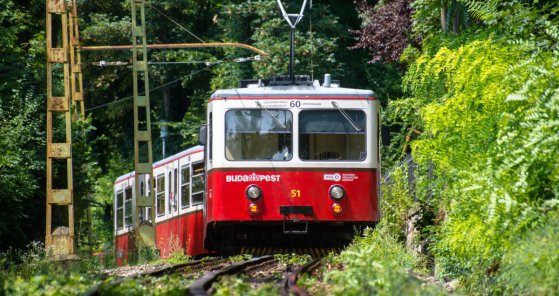 The cogwheel restarts in April
The cogwheel railway will start again on 1 April, the track was renovated during the winter break. It is a novelty that this summer the open nostalgia train will run several times between Városmajor and the Széchenyi Hill terminus.
The cogwheel restarts in April
The cogwheel railway will start again on 1 April, the track was renovated during the winter break. It is a novelty that this summer the open nostalgia train will run several times between Városmajor and the Széchenyi Hill terminus.
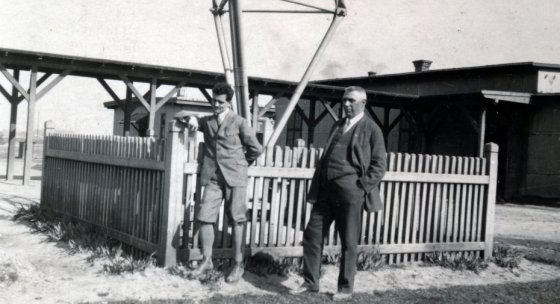 The radio is playing - Experimental broadcasting started 100 years ago
Regular public radio broadcasts started in Hungary at the end of 1925, but it was possible to listen to the radio in Hungarian in the country more than two years before public broadcasts began because experimental broadcasts started in March 1923.
The radio is playing - Experimental broadcasting started 100 years ago
Regular public radio broadcasts started in Hungary at the end of 1925, but it was possible to listen to the radio in Hungarian in the country more than two years before public broadcasts began because experimental broadcasts started in March 1923.

